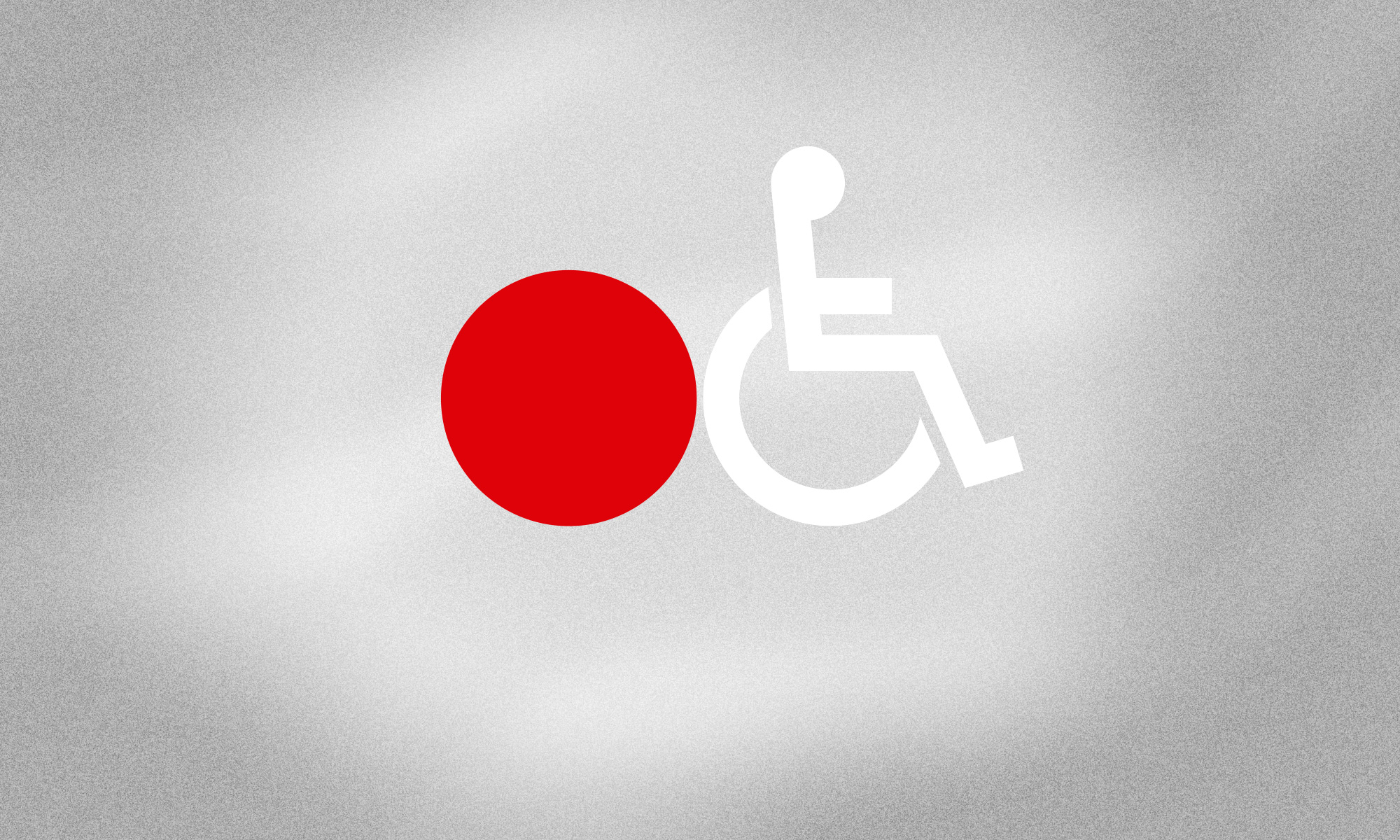Issue:
September 2021
The Paralympics have sparked a long-overdue discussion about disability in Japan. It should not be allowed to fade.

I began writing this piece just before the opening ceremony of the Tokyo 2020 Paralympics. I have cerebral palsy and epilepsy, and had been asked to write something for the FCCJ’s magazine, perhaps talking about my hopes as a person with disabilities about the impact the Tokyo Games would have on disabled people in Japan.
There was good reason to be hopeful that Japan would put in the effort when it came to holding the Paralympics. At the 2004 Summer Paralympic Games in Athens, Japan won 53 medals: 17 gold, 16 silver and 20 bronze.
It is worth noting that, since Tokyo hosted the Paralympics in 1964 Japan’s Paralympic team had never failed to win a gold medal until the 2016 Games in Rio, where it secured 10 silver medals and 14 bronze, including its first ever medal – a bronze – in mixed wheelchair rugby.
In short, Japan pays a lot of attention to the Paralympic Games, so there was good reason to be optimistic that Tokyo 2020 would be a positive thing for people with disabilities in Japan. Apart from the obvious potential sporting achievements, holding the Games would highlight issues that affect people with disabilities in Japan and the need for better barrier-free policies.
As early as September 2016, not long after the conclusion of the Rio Games, Yuriko Koike, the governor of Tokyo, was making speeches about how the Tokyo 2020 Paralympics would help people with disabilities in Japan. “Barrier-free facilities are of course important,” she said. “But I believe that a barrier-free mind is equally vital.”
There was some substance to the comment by Koike, who also spoke about the need to improve accessibility in Tokyo: “We have developed roads that are too narrow. This is a legacy of Tokyo. Furthermore, the doorways are not wide, and many houses have low ceilings. As we welcome athletes as well as spectators from all over the world at the venues, we must overcome these challenges ... I’d like to expand the width of the roads by doing away with utility poles, so we can provide accessibility to everyone.”
After Koike was forced to reduce the ballooning budget for the Tokyo 2020 Games, the coronavirus pandemic began. It soon became clear that holding the Olympics and Paralympics was a bad idea. However, both went ahead, much to the anger of those who were concerned that they would become Covid-19 superspreader events.
When events like the Paralympic Games come around, talk centres on their “legacy”. I try not to be cynical, although it is difficult. Typically, politicians such as Koike make speeches and promises about accessibility, and for a couple of weeks or so when the Games are being held, the media and wider society take notice of issues that affect people with disabilities. Then the Games end, and politicians, the media and society largely lose interest.
So, on the eve of the Tokyo 2020 Paralympics, I had mixed feelings. My sense was that it was probably a bad idea to hold the Olympics, but I also felt that if the Japanese authorities and the International Olympic Committee had insisted that it was possible to hold the Olympics “safely and securely,” then it would have been hypocritical not to hold the Paralympics. After all, how can one event be safe but not the other? If the Paralympics, an event that receives far less media attention than the “regular” Olympics, had been cancelled, would that not have confirmed that every critic of the Olympics during this pandemic were correct - that holding the Games was ultimately about sponsorship and money, and very little to do with sport?
The legacy I hope to see come out of the Tokyo Paralympics is that people in Japan continue talking about issues that affect people with disabilities. But as a person with disabilities, I also know that might not be the case. I have seen it before - everyone gets excited for a few weeks, bandying about mantras such as “barrier-free”. Then the Games end, and most people forget about the needs of people with disabilities.
The symbol of the Paralympic Games is the three agitos, from the Latin meaning, “I move”. Maybe the best legacy to come from the Tokyo 2020 Paralympics would be exactly that: to enable people with disabilities to keep moving.
Michael Gillan Peckitt is a Kansai-based academic and runs the news blog Barrier Free Japan.

